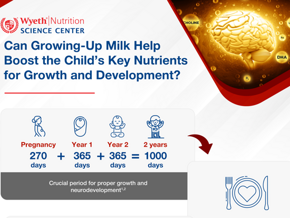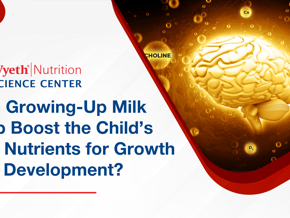![[Guideline Summary] Summary of the Chinese Society of Parenteral and Enteral Nutrition (CSPEN)](/sites/default/files/styles/header_image_article_mobile/public/2019-11/image%284%29_0.jpg.webp?itok=_yC-xvYt)
[Guideline Summary] Summary of the Chinese Society of Parenteral and Enteral Nutrition (CSPEN)
This guideline aims to provide proposed advisable ranges for nutrient intakes in neonates.
Background:
A guideline published by CSPEN proposed the recommendations on nutrient intakes in neonates based on a considered review of available scientific reports and expert consensus.
Summary of recommendations on enteral nutrition:
• Recommended intakes:
| Energy | - Most of neonates: 105 – 130 kcal/kg/d - Premature infants: 110 – 135 kcal/kg/d - Extremely low birth weight infants: 150 kcal/kg/d |
| Carbohydrate | 10 – 14 g/kg/d (40 – 50% of total energy) |
| Lipid | 5 – 7 g/kg/day (40 – 50% of total energy) |
| Protein | - Term infants: 2 – 3 g/kg/d (protein/energy ratio of 1.8 – 2.7 g/100 kcal) - Premature infants: 3.5 – 4.5 g/kg/d (protein/energy ratio of 3.2 – 4.1 g/100 kcal) |
• Recommended feeding mode:
| Breastfeeding | Should start as soon as possible after birth, especially for preterm infants. |
| Artificial oral feeding | Suitable for newborns with normal suckling, swallowing and breathing functions, with gestational age ≥ 32 – 34 weeks. |
| Artificial tube feeding | - Preterm infants with gestational age < 32 – 34 weeks. - Infants who have dysfunction of sucking and swallowing, or cannot be fed orally. - Infants under illness or medical condition that cannot be fed orally. |
Summary of recommendations on the selection of breastfeeding and enteral formula:
• Human milk:
Breastfeeding is the optimal way of feeding and should be continued until at least 6 months after birth.
• Human milk fortifier:
Recommended for preterm infants with birth weight < 2000 g.
• Formulas that can be used for enteral feeding:
| Types | Suitability |
|---|---|
| Standard infant formula | - For full-term infants with normal gastrointestinal function. - For preterm infants with gestational age > 34 weeks and birth weight > 2 kg. |
| Partially hydrolyzed protein formula | For newborns with high risk of allergy. |
| Extensively hydrolyzed protein formula / Amino acid-based formula | For infants who have undergone milk protein allergy after birth. |
| Lactose-free (low-lactose) formula | For infants with primary or secondary lactose intolerance or intestinal dysfunctions (e.g. persistent diarrhea, etc.) |
| Preterm formula | For preterm infants with gestational age < 34 weeks or birth weight < 2 kg. |
| Preterm post-discharge formula | For preterm infants who still have growth retardation at discharge. |
Additional reading:
ACOG Recommended Definition of Term Pregnancy
IMPORTANT NOTICE
The World Health Organisation (WHO*) has recommended that pregnant women and new mothers be informed on the benefits and superiority of breast-feeding – in particular the fact that it provides the best nutrition and protection from illness for babies.
Mothers should be given guidance on the preparation for, and maintenance of, lactation, with special emphasis on the importance of a well-balanced diet both during pregnancy and after delivery. Unnecessary introduction of partial bottle-feeding or other foods and drinks should be discouraged since it will have a negative effect on breast-feeding. Similarly, mothers should be warned of the difficulty of reversing a decision not to breast-feed.
Before advising a mother to use an infant formula, she should be advised of the social and financial implications of her decision: for example, if a baby is exclusively bottle-fed, more than one can (450 g) per week will be needed, so the family circumstances and costs should be kept in mind. Mothers should be reminded that breast-milk is not only the best, but also the most economical food for babies.
If a decision to use an infant formula is taken, it is important to give instructions on correct preparation methods, emphasizing that unboiled water, unsterilized bottles or incorrect dilution can all lead to illness.
* See: International Code of Marketing of Breast Milk Substitutes, adopted by the World Health Assembly in Resolution WHA 34.22, May 1981.
Reference
Working Group of Pediatrics Chinese Society of Parenteral And Enteral Nutrition, Working Group of Neonatology Chinese Society of Pediatrics, Working Group of Neonatal Surgery Chinese Society of Pediatric Surgery. CSPEN guidelines for nutrition support in neonates. Asia Pac J Clin Nutr. 2013 Dec;22(4):655-63. doi: 10.6133/apjcn.2013.22.4.21.
WYE-EM-262-DEC-13
If you liked this post you may also like



